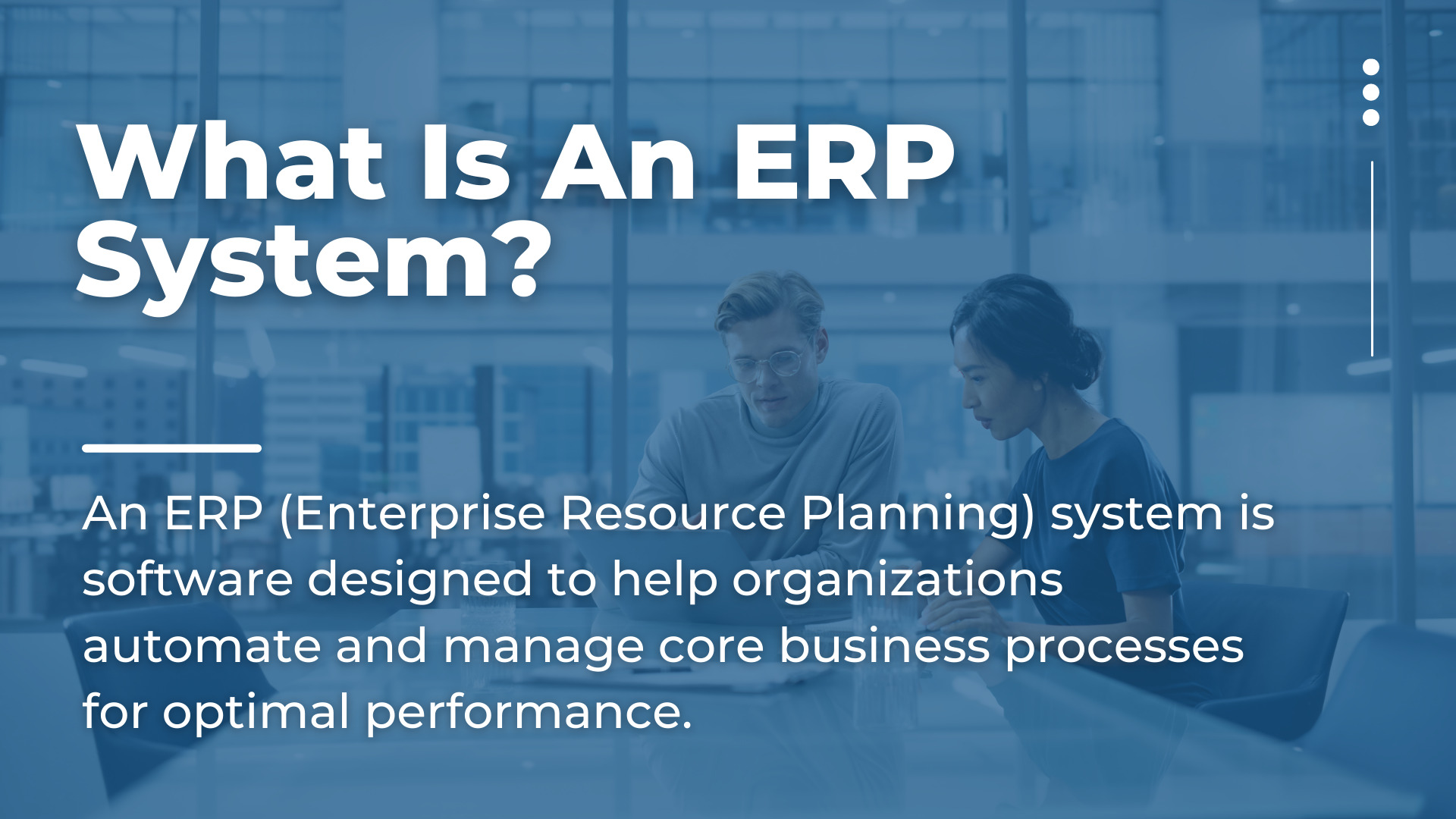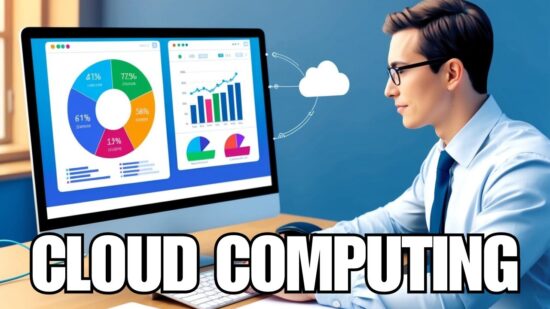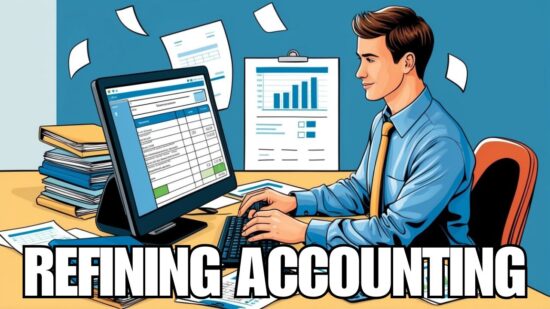What Is An ERP System?
Unveiling Its Crucial Role in Today’s Business Landscape
In today’s fast-paced and ever-evolving business landscape, staying on top of core business processes is essential to maintain a competitive edge. One vital tool to ensure that your organization operates efficiently and effectively is an Enterprise Resource Planning (ERP) system. An ERP system is software designed to help businesses automate and manage their core processes for optimal performance.
Understanding the ERP system’s role is crucial as a decision-maker in your organization. ERP software coordinates the data flow between a company’s business processes and provides a single source of truth, streamlining operations across the enterprise. Common areas of focus for ERP modules include finance, accounting, human resources, sales, procurement, logistics, and supply chain management.
The importance of an effective ERP system in today’s business landscape cannot be overstated. These integrated platforms help to break down data silos, improve decision-making, and optimize operations across various departments. By leveraging an ERP system, you can gain valuable insights, enhance your core accounting functions, and support your company’s overall growth and success.

What Is An ERP System?
An ERP (Enterprise Resource Planning) system is software designed to help organizations automate and manage core business processes for optimal performance. This software coordinates data flow between a company’s various business processes, providing a single source of truth and streamlining operations across the enterprise.
ERP systems are integrated modules, each focusing on one specific business area, but they work together using the same data to meet your company’s needs. Common areas covered by ERP modules include finance, accounting, human resources, sales, procurement, logistics, and supply chain management.
As a user of an ERP system, you will benefit from it in several ways. First, it helps break down data silos within the organization, integrating information across multiple departments and functionalities. This improves communication and collaboration and allows for more data-driven decision-making.
Next, ERP systems often increase efficiency by automating many manual processes. For example, an ERP system can automatically generate purchase orders and invoices, saving your staff time and reducing human error. This automation extends to other areas, such as inventory management and project planning, allowing your team to focus on more strategic tasks.
Additionally, a well-implemented ERP system can grant you greater visibility and control over various aspects of business operations. You can monitor and analyze data in real time and receive notifications about potential issues or changes in trends. This information can help you identify areas for improvement and make more informed decisions to drive business growth.
Here are some key features to look for in an ERP system:
- Integration: An effective ERP system seamlessly integrates your key business systems and modules in one central platform. This promotes smooth data sharing and joint functionality.
- Scalability: As your business grows, your ERP system should grow with it. Choose a system that can accommodate your expanding operations, whether it’s adding new modules, users, or increasing data capacity.
- Customization: Every business is unique. Ensure that your ERP system has the flexibility to adapt to your specific processes, requirements, and industry standards.
- User-friendliness: A user-friendly ERP system is essential for efficient adoption and use by your staff. Opt for software with an intuitive interface, clear guidance, and strong support features.
Implementing an ERP system into your organization is critical for streamlining operations and optimizing performance in today’s fast-paced business landscape. By taking advantage of an ERP system’s features and capabilities, you can stay ahead of the competition and pave the way for future success.
Key Components of ERP Systems
Finance and Accounting
The finance and accounting module in an ERP system helps you manage your organization’s financial transactions, including general ledger, accounts payable, accounts receivable, and fixed assets management. This module streamlines your financial operations, ensures accurate reporting, and supports regulatory compliance.
- General Ledger: Keep track of your financial accounts, transactions, and balance sheets.
- Accounts Payable: Manage your expenses and vendor payments.
- Accounts Receivable: Handle your customer invoices and payments.
- Fixed Assets: Maintain a record of your organization’s long-term tangible assets.
Supply Chain Management
The supply chain management module in an ERP system assists you in streamlining end-to-end supply chain processes, including procurement, order management, inventory control, and logistics. This module enables you to optimize your supply chain and improve visibility across your network.
- Procurement: Manage your organization’s purchasing process and supplier relations.
- Order Management: Handle customer orders and track order fulfillment.
- Inventory Control: Monitor stock levels and efficiently manage your warehouse operations.
- Logistics: Oversee the transportation and delivery of goods.
Human Resources
An ERP system’s human resources module helps you manage all aspects of your workforce, including employee data, recruitment, performance management, and payroll. This module ensures that your organization effectively manages its most valuable asset – its employees.
- Employee Data: Store and maintain detailed records of each employee.
- Recruitment: Manage the hiring process, from job postings to candidate tracking.
- Performance Management: Monitor employee performance and set development goals.
- Payroll: Process and maintain employee salary, deductions, and tax data.
Customer Relationship Management
The customer relationship management (CRM) module in an ERP system enables you to better understand and manage your customer relations. This module assists with tracking customer interactions, opportunities, and sales activities, ensuring excellent customer service and fostering long-term relationships.
- Contact Management: Store and manage your customer information and communication history.
- Opportunity Tracking: Manage leads and potential sales opportunities.
- Sales Activities: Oversee your sales processes and improve revenue forecasting.
- Customer Service: Monitor customer support requests and resolve issues effectively.
Manufacturing and Production
The manufacturing and production module in an ERP system aids in the planning, production, and quality control of goods and services. This module offers functionalities for production scheduling, material requirements planning, and shop floor management.
- Production Scheduling: Plan and optimize the schedules for your production processes.
- Material Requirements Planning: Determine material demand and allocate resources effectively.
- Shop Floor Management: Monitor real-time production data and manage shop floor activities.
Business Intelligence
The business intelligence module in an ERP system provides powerful analytics and reporting tools that enable you to make data-driven decisions for your organization. This module offers insights into your financial, operational, and customer data, helping you identify trends, opportunities, and areas for improvement.
- Data Visualization: Create interactive dashboards and visualizations to understand your data better.
- Reporting: Customize and generate detailed reports for various aspects of your business.
- Predictive Analytics: Leverage advanced analytics tools to forecast trends and resource demands.
Benefits of ERP Systems
An ERP (Enterprise Resource Planning) system is a crucial business tool in today’s landscape, and understanding its benefits can help you make the most of its features. Here are some of the advantages of using an ERP system for your business:
- Integration: An ERP system integrates all aspects of your business into a single platform, streamlining your operations and increasing efficiency. This allows you to effectively manage resources, track inventory, and coordinate sales and marketing efforts.
- Automation: By automating business processes, your ERP system can save you time and reduce the risk of human error. This automation can also help to increase productivity, as employees can focus on more critical tasks rather than manual data entry.
- Decision-Making: With real-time reporting and analytics, an ERP system provides you with invaluable insights to inform your decision-making process. Accurate financial data and key performance indicators (KPIs) can help you better understand your company’s current performance and areas for improvement.
- Single Source of Truth: An ERP system is a single source of truth for your organization’s data, ensuring accuracy and coherence across departments. This comprehensive view of your operations can help support collaboration and enable informed decision-making.
- Improved Tracking: An ERP system enhances your tracking capabilities, whether it’s tracking inventory levels, tracking sales and leads, or monitoring employee performance. This increased visibility helps you make more informed decisions and optimize various aspects of your business.
- Collaboration: By sharing information and breaking down data silos, an ERP system can facilitate better collaboration among departments. This interdepartmental visibility enables teams to work together more effectively and can enhance overall productivity.
- Increased Efficiency: An ERP system can help you identify inefficiencies and optimize your business processes, improving operational efficiency. With advanced business intelligence tools, an ERP system can help you analyze your data and devise solutions that target specific areas of improvement.
As you can see, there are numerous advantages to using an ERP system in your business. By understanding these benefits, you can ensure you’re maximizing your investment and leveraging the full potential of your chosen system.
Cloud-Based vs. On-Premise ERP
As you explore ERP systems for your business, you will likely encounter both cloud-based and on-premise options for deployment. Understanding the key differences between these two types of ERP systems is crucial for making an informed decision that will fit your business needs.
Cloud-Based ERP systems, or Software-as-a-Service (SaaS), are hosted on the vendor’s servers and accessed through a web browser. Some benefits of cloud-based ERP systems include the following:
- Faster implementation: Cloud ERP deployments usually take 3-6 months, compared to the 12 months it typically takes to implement an on-premise solution.
- Scalability: With cloud-based ERPs, you can easily add more users as your business grows.
- Reduced IT burden: The vendor is responsible for system updates and maintenance, which helps eliminate IT staff’s involvement in these tasks.
On-Premise ERP systems are installed locally on your company’s computers and servers. Some advantages of on-premise ERP systems are:
- Control: You have greater control over the system’s configuration and customization, which may be ideal if you have unique requirements.
- Data Security: Some businesses prefer keeping their data in-house for security reasons or due to regulatory concerns.
Hybrid ERP deployments are another option, where cloud software is hosted on your organization’s private servers. This approach combines some benefits of both cloud-based and on-premise systems.
Regarding agility and speed, cloud-based ERP systems typically outperform on-premise systems. Since cloud-based systems are managed by the vendor and accessed over the internet, updates and new features can be rolled out with minimal disruption to your operations. Conversely, on-premise systems rely on your internal IT team to manage updates, which can be time-consuming and cumbersome.
Choosing between cloud-based and on-premise ERP systems depends on various factors, such as your organization’s size, industry, specific needs, and priorities. Weigh the benefits and drawbacks of each option carefully to determine the right ERP system for your business.
Customization and Integration
As a business professional, you know that ERP systems are crucial in today’s business landscape. Their ability to manage and streamline processes can significantly improve productivity and efficiency. This section will discuss the importance of customization and integration in ERP systems.
Customization is essential for adapting an ERP system to meet your business needs. It involves modifying the existing features or adding new functionalities to the system. There are various types of ERP customizations you might encounter, such as:
- System configuration changes
- Data field additions
- New functionality development
- Third-party add-ons integration
To manage ERP customization effectively, it is essential to assess the long-term business value of each customization and use modern technologies with built-in abstraction layers. Furthermore, declutter your ERP system by retiring unnecessary customizations to maintain optimal performance and manageability.
Conversely, integration is connecting your ERP system with other specialized applications and processes across your entire business. ERP integration aims to create seamless communication and data sharing between different systems. The benefits of successful ERP integration include:
- Reduced manual data entry
- Improved data consistency and accuracy
- Enhanced visibility into business operations
- Streamlined workflows
- Better collaboration among team members
- Faster decision-making
When considering integration options, it is vital to choose an ERP system with native integration capabilities, such as Shopify-NetSuite, for maximum flexibility and seamless connectivity with your e-commerce platform.
Customization and integration are essential aspects of ERP systems in today’s business landscape. When properly managed, these features can greatly enhance your organization’s productivity and efficiency while ensuring that your ERP system provides value-added services tailored to your business requirements.
Industry Applications
Retail and E-commerce
In retail and e-commerce, ERP systems help streamline inventory, sales, and customer relationship management (CRM). They enable you to:
- Monitor stock levels in real-time
- Automate order processing and fulfillment
- Access updated customer data at any time
- Analyze sales patterns and trends for better decision-making
Manufacturing and Wholesale Distribution
ERP systems are essential in managing production, inventory, and supply chain for manufacturing and wholesale distribution businesses. They provide capabilities like:
- Accurate demand forecasting
- Production scheduling and monitoring
- Automated tracking of work-in-progress
- Improved supplier collaboration and communication
Professional Services and Logistics
ERP systems play a vital role in professional services organizations and logistics companies. They can help you in areas such as:
- Project planning and resource allocation
- Expense tracking and financial reporting
- Managing service contracts and warranties
- Optimizing routes and fleet management in logistics
Human Capital Management
Managing your workforce effectively is crucial to your business’s success. ERP systems dedicated to human capital management can offer features like:
- Centralized employee data storage
- Streamlined hiring, onboarding, and offboarding processes
- Integration with time and attendance systems
- Performance evaluation and goal management
Financial Management
Sound financial management is pivotal for any business, and ERP systems offer robust solutions to assist you. They can help you with the following:
- Real-time financial data for easier analysis
- Efficient accounts receivable and accounts payable management
- Integration with tax reporting and compliance tools
- Budget planning and management
Each industry has unique challenges, and ERP systems are designed to address these specific needs, making them an indispensable part of today’s competitive business landscape.
Key ERP System Providers
Microsoft Dynamics 365 (Business Central)
Microsoft Dynamics 365 is a leading ERP solution provider that helps organizations automate and manage core business processes for optimal performance. This versatile software coordinates data flow between a company’s business processes, providing a single source of truth and streamlining operations across the enterprise.
Dynamics 365 offers many modules to enhance your business’ efficiency, including finance, accounting, human resources, sales, procurement, logistics, and supply chain management. The key features of this ERP system are:
- Integration with other Microsoft products, such as Office 365 and Azure, providing a comprehensive and seamless user experience
- A flexible, cloud-based architecture that enables easy scalability and customization
- Advanced analytics and reporting capabilities for improved decision-making
- Industry-specific solutions for better alignment with your unique business requirements
Make sure to consider Dynamics 365 for an ERP solution tailored to your specific business needs, offers a powerful suite of features and seamlessly integrates with the Microsoft ecosystem.
ZipRecruiter
While not a traditional ERP system provider, ZipRecruiter plays a significant role in the employment marketplace by helping businesses streamline hiring processes. As an online recruitment platform, it allows you to reach a wider pool of potential candidates and efficiently manage job postings, applicant tracking, and resume searches.
ZipRecruiter stands out in the following ways:
- A user-friendly interface and streamlined processes for posting jobs and searching for candidates
- Integration with popular job boards and social media platforms to maximize exposure for your job postings
- Machine learning algorithms that help match qualified candidates to your open positions, saving time and resources
- Collaborative tools that enable your HR team to review applicants and provide feedback collectively
In summary, while ZipRecruiter may not offer traditional ERP functionalities, connecting employers and job-seekers through an efficient, data-driven platform is crucial in today’s business landscape.
Future Trends in ERP Systems
As you navigate the rapidly changing business landscape, keep an eye on these emerging trends in ERP systems to stay ahead of the curve:
- Artificial Intelligence and Machine Learning: Integrating AI and machine learning technologies into ERP systems revolutionizes how companies analyze data, forecast trends, and make informed decisions. With these advanced capabilities, your ERP system will be able to identify patterns, provide insights, and make predictions, enabling your business to respond quickly and efficiently to changes in the market.
- Enhanced Risk Management: In today’s globally connected world, businesses must proactively identify and mitigate potential risks. Modern ERP systems incorporate advanced risk management modules, helping you monitor and assess vulnerabilities in real time. This enables your business to minimize adverse effects, protect valuable assets, and ensure compliance with regulations.
- Data Integration: As your business grows, the volume and complexity of data increase exponentially. Integrating data from multiple sources and streamlining its processing will be vital for maintaining efficiency. ERP systems with advanced data integration capabilities will consolidate information from different departments, simplifying access and analysis for better decision-making.
- Customer Service Enhancements: The success of your business depends on effective customer engagement. ERP systems embrace customer-centric modules that provide deeper insights into customer behavior and preferences. This allows you to deliver personalized and consistent experiences across all touchpoints, ultimately driving customer loyalty and satisfaction.
- Smarter Business Decisions: Real-time data and advanced analytics transform businesses’ decisions. Future ERP systems will empower your organization with a data-driven approach, providing comprehensive and actionable insights. This will allow you to make informed choices, optimize resources and processes, and drive continuous improvement.
By staying informed about these trends, you can ensure that your ERP system remains vital to your business’s growth and success.






